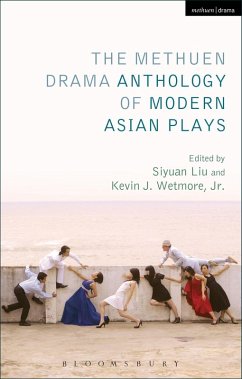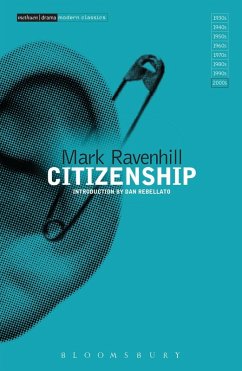
Women on the Early Modern Stage (eBook, PDF)
A Woman Killed with Kindness, The Tamer Tamed, The Duchess of Malfi, The Witch of Edmonton
Redaktion: Smith, Emma
Versandkostenfrei!
Sofort per Download lieferbar
16,95 €
inkl. MwSt.
Weitere Ausgaben:

PAYBACK Punkte
8 °P sammeln!
This New Mermaids Anthology brings together four plays which centre around female characters on stage: A Woman Killed With Kindness (Thomas Heywood); The Tamer Tamed (John Fletcher); The Duchess of Malfi (John Webster) and The Witch of Edmonton (William Rowley, Thomas Dekker and John Ford) with a new introduction by leading scholar Emma Smith. A Woman Killed with Kindness is a domestic tragedy of property and marriage, adultery and revenge, and strips bare two women's lives in one of the first tragedies ever to be written about ordinary people. The Tamer Tamed is a free-wheeling and witty come...
This New Mermaids Anthology brings together four plays which centre around female characters on stage: A Woman Killed With Kindness (Thomas Heywood); The Tamer Tamed (John Fletcher); The Duchess of Malfi (John Webster) and The Witch of Edmonton (William Rowley, Thomas Dekker and John Ford) with a new introduction by leading scholar Emma Smith. A Woman Killed with Kindness is a domestic tragedy of property and marriage, adultery and revenge, and strips bare two women's lives in one of the first tragedies ever to be written about ordinary people. The Tamer Tamed is a free-wheeling and witty comedy in which the place and status of women, and the nature of marriage, are subjected to sustained attention, demonstrating one way in which early modern writers were able to challenge and invert social convention, and to at least imagine alternative modes of behaviour. The Duchess of Malfi is a classic revenge tragedy and masterpiece of the Jacobean bizarre, featuring a severed hand, a wolf-man, and a poisoned Bible. The Witch of Edmonton is a domestic tragedy in which Elizabeth Sawyer sells her soul to the Devil to revenge her neighbours. These four early modern plays plays upset old certainties about gender ideology: less 'chaste, silent and obedient' and more diverse, eloquent, and complex.













